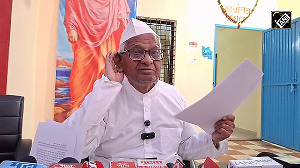The Indian drug industry's dream of coming out with an own new chemical entity or an originally researched new drug has received a big boost. Balaglitazone, the diabetic drug molecule being developed by Dr Reddy's Laboratories, has showed encouraging results in the final lap of human clinical trials.
Dr Reddy's and its partner, Denmark-based Rheoscience, a subsidiary of Nordic Bioscience, on Monday said a comparative study on the safety and efficacy of Balaglitazone with another product, Pioglitazone, yielded better results.
"These results offer the opportunity for a constructive series of dialogues with both potential partners, as well as regulatory agencies. We look forward to working with Rheoscience to define the path forward for Balaglitazone," said G V Prasad, vice-chairman and CEO, Dr Reddy's.
Balaglitazone was the first NCE to be developed by the Indian drug industry, way back in the early 1990s by Anji Reddy, a scientist-turned-entrepreneur and currently chairman of Dr Reddy's. Named after Lord Balaji of Tirupati, the drug had a roller-coaster ride in the past two decades, to reach the final stage of Phase-III human clinical development.
This potential Type-II diabetes drug was out-licensed in 1997 to Novo Nordisk of Denmark, but Novo returned it in 2004. In between, Novo took up the development of another anti-diabetic compound, Ragaglitazar (named after Anji Reddy), but it failed in the final stages of development.
Three years earlier, Rheoscience, a Danish bio-pharmaceutical company, took up further development of Balaglitazone, a class of compounds now under the scanner of many regulators for safety issues.
In an earlier interview with Business Standard, Anji Reddy had said he was confident of the progress of the molecule and hoped to commercialise the product by 2011 or 2012.





